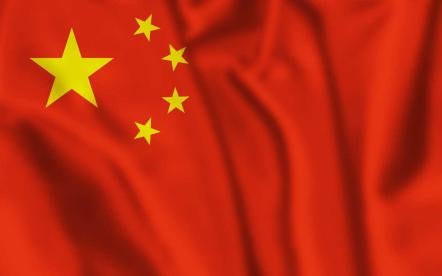On October 8, 2022, China’s State Administration for Market Regulation (SAMR) released the Interim Measures for the Supervision and Administration of the Quality and Safety of Food-Related Products (“Interim Measures”)[1], developed from a draft version that was published on July 31, 2020, for comment. This is currently the only regulation in China that specifically addresses the general requirements for the manufacture and sales of food-related products (including food-contact materials and articles), as well as the responsibilities of the regulators. Compared with the overarching Food Safety Law (FSL), the Interim Measures refine some requirements targeted at food-related products but, overall, are not significantly different from the existing laws and regulations or current practice, nor do they appear to be overly burdensome to industry. We summarize some of the key provisions below.
Prohibited Products
The Interim Measures prohibit the manufacture and sales of the following food-related products:
-
Products that use raw materials and additives not conforming to food safety standards, as well as other substances that may endanger human health, or use additives beyond the scope or limitation
-
Products with the content and migration of pathogenic microorganisms, pesticide residues, veterinary drug residues, biotoxins, heavy metals, and other harmful substances exceeding the limitation under food safety standards
-
Adulterated or fake products
-
Products that have been ordered by the government to be prohibited/phased out from the market
-
Products that forge the origin or forge or falsely use another's factory name, address, etc.
-
Other products that do not conform to laws, regulations, and food safety standards
These prohibitions generally follow the prohibitions in the FSL on food-related products. Notably, the Interim Measures add a prohibition on products that have been ordered by the government to be prohibited/phased out from the market. In recent years, China has tightened the management of plastic pollution and has prohibited the production of certain plastic products, for example, ultra-thin plastic shopping bags with a thickness of less than 0.025 mm (see K&H’s 2022 Year-in-Review on China’s food packaging regulations). With more restrictive policies expected in the future, industry will need to pay closer attention to the development of China’s industrial policies that will affect the supply of food-contact plastic products in China.
Manufacture and Sales
The Interim Measures list the basic requirements for quality control in the whole production process of food-related products. These requirements are basically principles and do not exceed what is expected for production quality management of food-related products. For example, the Interim Measures generally require that the manufacturer must establish product quality and safety management systems to control the production process, such as raw materials control, testing control, transportation, and delivery control, etc.
Like current practice, the Interim Measures affirm that high-risk food-related products, including finished packaging materials in direct contact with food, are subject to production licensing.
Notably, compared with the draft of the Interim Measures, the final regulation removed the requirement that manufacturers and sellers must make quality and safety commitments to the local market regulation authorities. The removal of this additional obligation should reduce unnecessary burden on industry.
Identification Information
The Interim Measures require that the following “identification information” must be marked for a food-related product:
-
Product name
-
Name, address, and contact information of the manufacturer
-
Production date and shelf life (when applicable)
-
Standards that are followed
-
Material type and category
-
Precautions or warnings
-
Other items that must be marked as required by laws, regulations, food safety standards, and other mandatory provisions
These are not surprising requirements, but the key is how to provide “identification information,” which does not necessarily refer to “labeling” information. In this respect, the Chinese GB food packaging standards are more specific. For example, GB 4806.1-2016, the General Safety Standard, regards the information on the label, the instruction manual, or the declaration of compliance all as product identification information, and therefore allows the identification information to be provided on the label, in the instruction manual, or in accompanying documentation. In addition, compared with the draft, the final Interim Measures added that if food safety standards have otherwise provided for the identification information, such provisions shall prevail.
Penalties
Compared with the draft, the final Interim Measures significantly simplified the penalty provisions and generally refer to penalties under “laws and regulations,” which we understand mainly include the FSL and its implementing regulation. At the same time, the Interim Measures impose specific penalties on two types of violations: First, on the “use” of food-related products with raw materials and additives not in compliance with food safety standards, the Interim Measures impose a fine of no more than 200,000 yuan. Note that this provision seems to conflict with the harsher provisions set forth in the FSL, where food producers and operators who purchase or use food-related products that do not meet the food safety standards will be fined up to 10 times the value of the goods or even will have the license revoked. Second, the Interim Measures also impose penalties on acts that do not conform to the production control system requirements (such as failure to establish and implement a product quality and safety management system), with a fine of no more than 50,000 yuan. Nevertheless, even though the penalties do not seem to fully align with the FSL, whether/how to impose the penalties is always at the discretion of the authorities.
FOOTNOTES
[1] https://gkml.samr.gov.cn/nsjg/fgs/202209/t20220930_350531.html






 i
i


